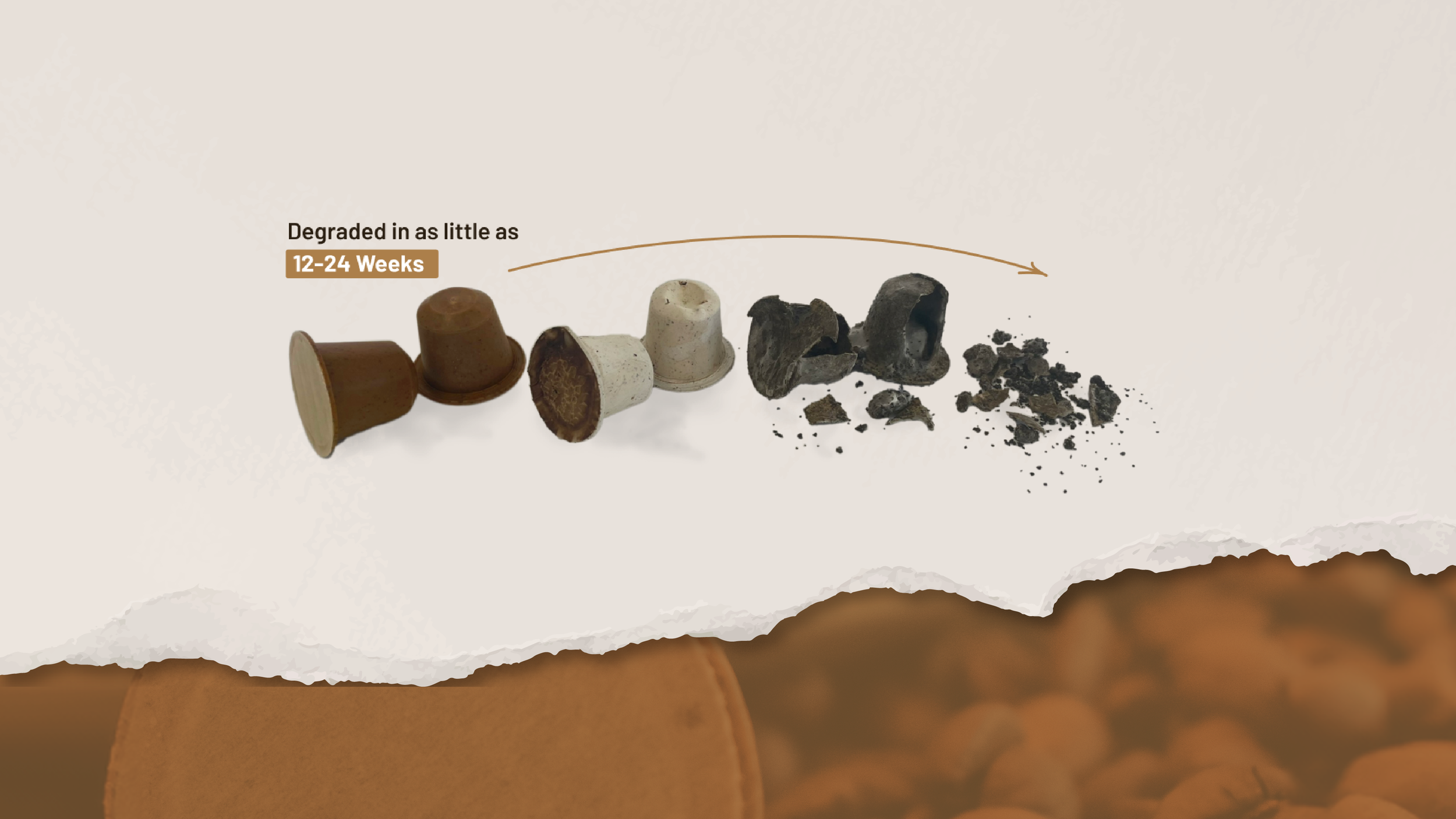
Designed to Degrade
Solinatra materials are compostable and biodegradable, they are designed to degrade without a trace. Learn more about the end-of-life options for Solinatra materials.
Solinatra is compostable and biodegradable, and fully degrades in both home and industrial composting without leaving behind any microplastics or harmful pollutants.
Composting
Industrial Composting
After use, products made of Solinatra can be collected with food waste in kerbside collections for industrial or municipal composting. For food contaminated products such as disposable cutlery or food packaging, this is a simple solution for home consumers and food outlets that allows organic waste to be collected together. Products made of Solinatra have been tested in industrial composting and anaerobic digestion facilities, and fully degrade within the 40 day composting period.
Home Composting
At home, products made of Solinatra can be disposed of after use in garden composters, bokashi or vermicomposting systems. In home composting there are many more variables to the speed of degradation, coffee capsules made of Solinatra fully degrade at the same rate as a banana peel, whilst thicker or heavier items will take slightly longer. All products made of 100% Solinatra material are compostable and leave behind only water, CO2 and biomass – enriching compost and creating high quality fertiliser.
Other End of Life Scenarios
It’s important to know what happens if a product is disposed of incorrectly or if composting facilities aren’t available.
In all cases, Solinatra fully degrades and never leaves behind microplastics or harmful contaminants.
Marine
Solinatra fully degrades in marine environments. Applications made of Solinatra, such as mangrove planters are designed to degrade within only a few months in a marine environment.
Recycling
Solinatra materials are compostable and not designed for traditional recycling streams. However, if products made of Solinatra enter the plastic recycling stream, they will either be rejected by automatic sorting, or will be incorporated – studies show that biomaterials such as Solinatra do not negatively impact the recycled end-material.
Landfill
If products made of Solinatra enter general waste streams and end up in landfills, they will degrade without releasing harmful pollutants.
Incineration
If products made of Solinatra are incinerated, including being sent to Energy Recovery Facilities (ERF), products made of Solinatra release no harmful particles into the atmosphere.

Compostability
Solinatra is compostable and biodegradable, and fully degrades in both home and industrial composting without leaving behind any microplastics or harmful pollutants

Make a positive impact
Join us on our journey to create a world free of plastic-waste, creating circular solutions for a greener future. Enter your email address to sign up for updates, or get in touch and start a conversation







